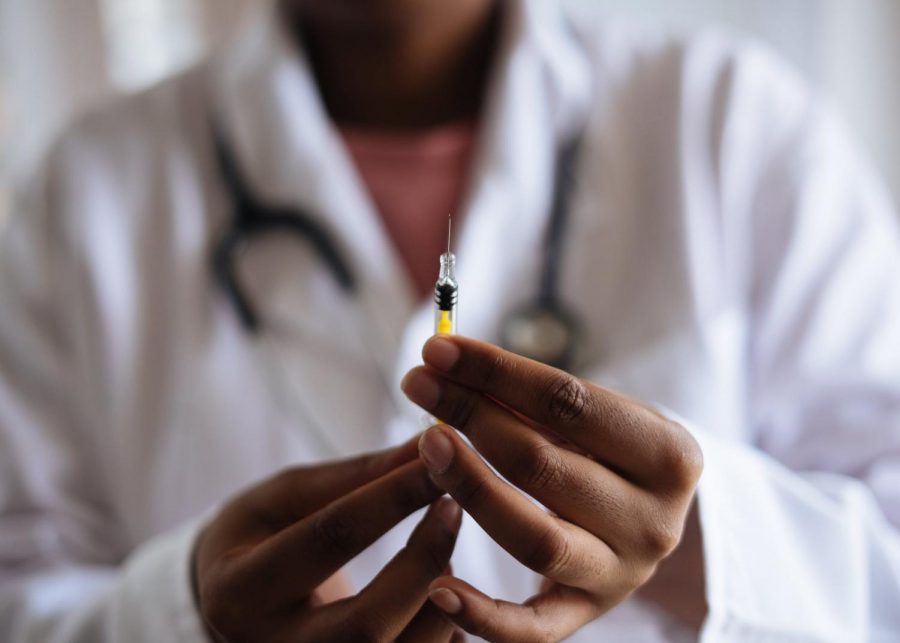Canadians divided over potential COVID-19 vaccine
Some Canadians do not intend to get vaccinated, even as many potential candidates move closer to approval
November 18, 2020
On November 9th, the American pharmaceutical company Pfizer and its partner, the German company BioNtech, announced the preliminary results of their vaccine, suggesting that it was more than 90% effective. This was followed by another announcement last Monday by the American pharmaceutical company Moderna, which suggested that their vaccine was also 95% effective in clinical trials. This news was welcomed by many people in Canada and around the world who hope that the COVID-19 pandemic could soon be under control by early next year. The desire for a vaccine is understandable given the extent and severity of the pandemic which has infected over 55 million people globally and claimed the lives of over 1 million.
The results of these clinical trials announced by Pfizer and Moderna have also reinvigorated an intense debate regarding the safety of a potential vaccine and who should receive it. Last summer, the Federal Government announced that it had purchased enough supplies to provide two doses of a potential COVID-19 vaccine to every Canadian whenever one is made available. The government also signed separate deals with both Pfizer and Moderna to secure millions of doses of their respective COVID-19 vaccines. The province of Ontario is expected to receive 1,800,000 doses of the Pfizer vaccine and 600,000 doses of the Moderna vaccine between January and March of next year.
However, not all Canadians are expected to get vaccinated when a potential vaccine is approved. A survey conducted by the Leger and the Association for Canadian Studies suggests that 22% of Canadians do not intend to get vaccinated, with another 22% being undecided. Mersum Khoker, a grade 12 student at R.H. King says “I’m weary of the vaccine because I wonder if it’s been tested and had enough trial runs to determine how safe it is for the population. It’s in the best interest of the economy to have the vaccine sooner than later, so of course the government is trying to get it done.” Opponents of the vaccine fear that it could have negative side effects in the long term as a result of the sped up clinical trial process.
Despite the opposition to a vaccine, the survey suggests that a majority of Canadians will get vaccinated. Around 69% per cent of respondents said they plan to get vaccinated once one is approved by Health Canada and is widely available and free. Esther Sicat, another grade 12 student at R.H. King, says “I would get the vaccine because it is not just about protecting myself but also helping to protect others who are immunocompromised. If we want COVID-19 to go away, everyone will have to do their part. We can not afford to be selfish.” Supporters of the vaccine argue that not getting vaccinated will make it more difficult to get the pandemic under control. Dr. Anthony Fauci, the top infectious disease expert in the United States, estimates that nearly 80-85% of people will need to get vaccinated in order to meaningfully reduce infection rates within their country alone.
While neither vaccine is likely to be a magic solution to ending the COVID-19 pandemic, it is indisputable that the approval of one will play a significant role in efforts to mitigate the impact of the virus. Any decision on whether to get vaccinated is not to be taken lightly as the ramifications of this choice are far greater than any one person. In order for a vaccine to be effective, it is crucial that those who are eligible get vaccinated whenever one is made available. Although it is likely we will be wearing masks in public spaces for the foreseeable future, a vaccine could be the determining factor as to whether pandemic continues into the years that follow.

